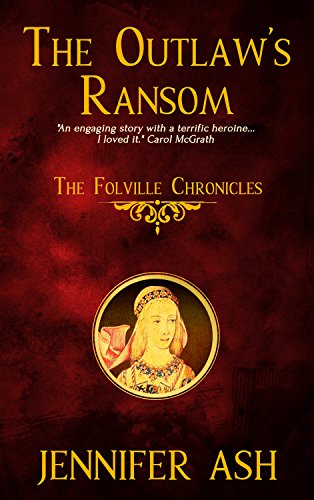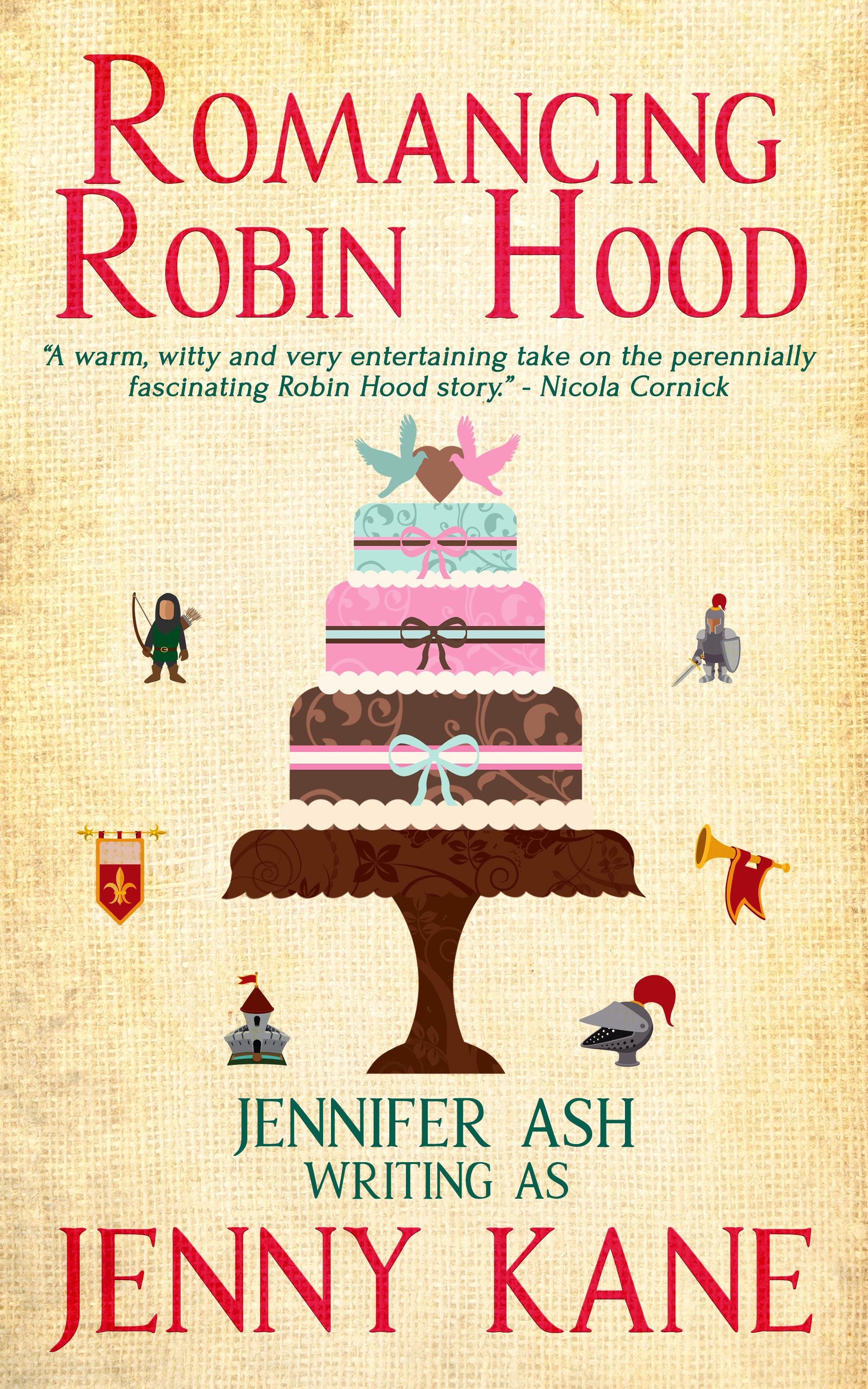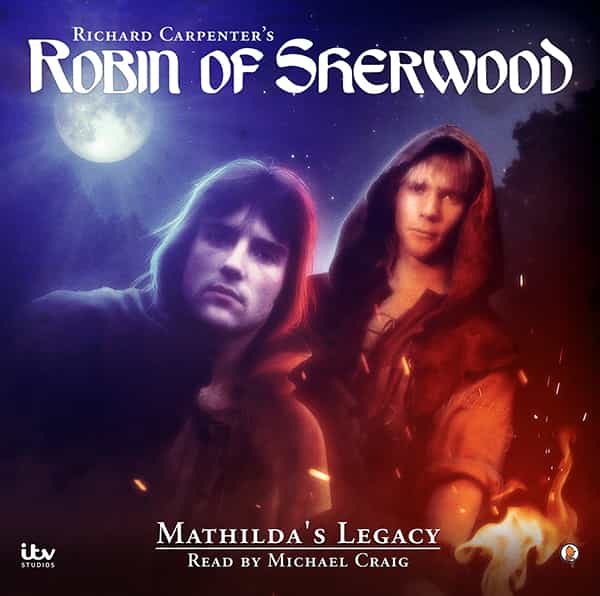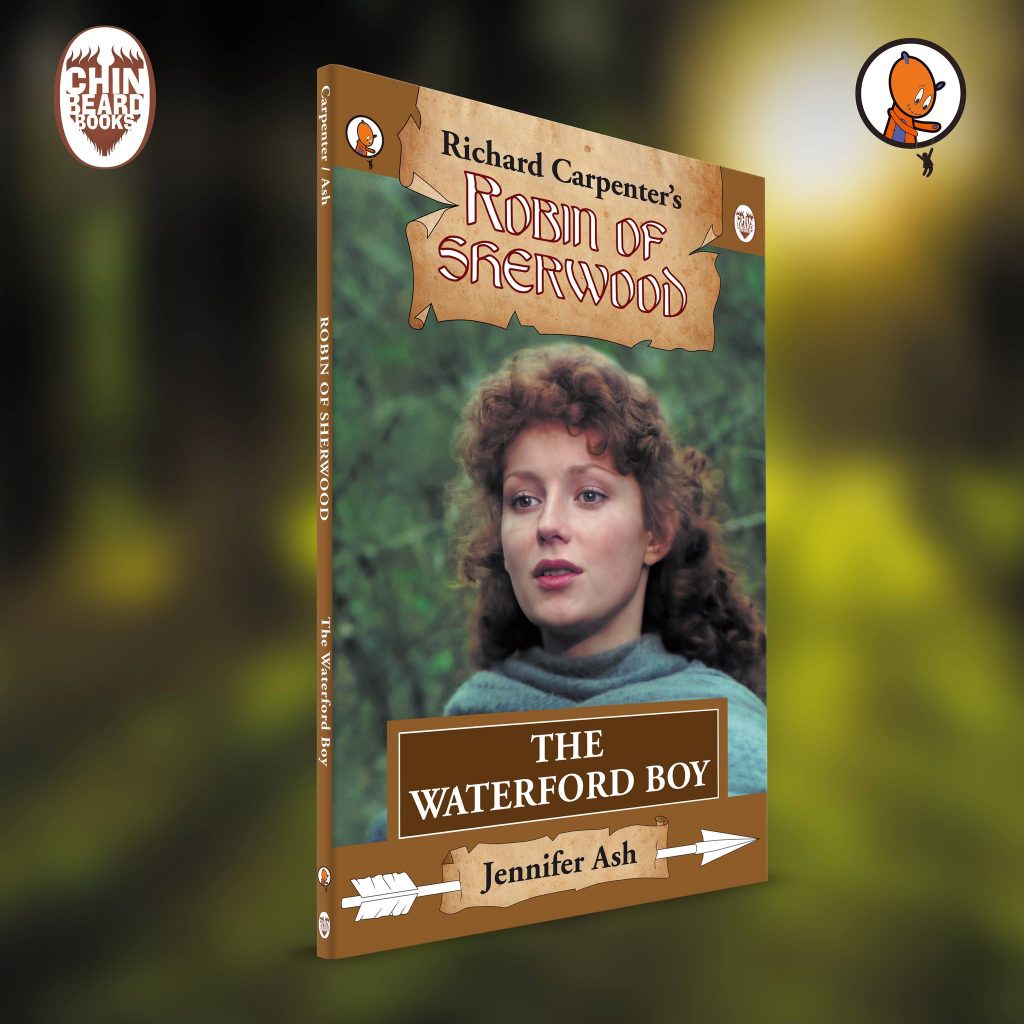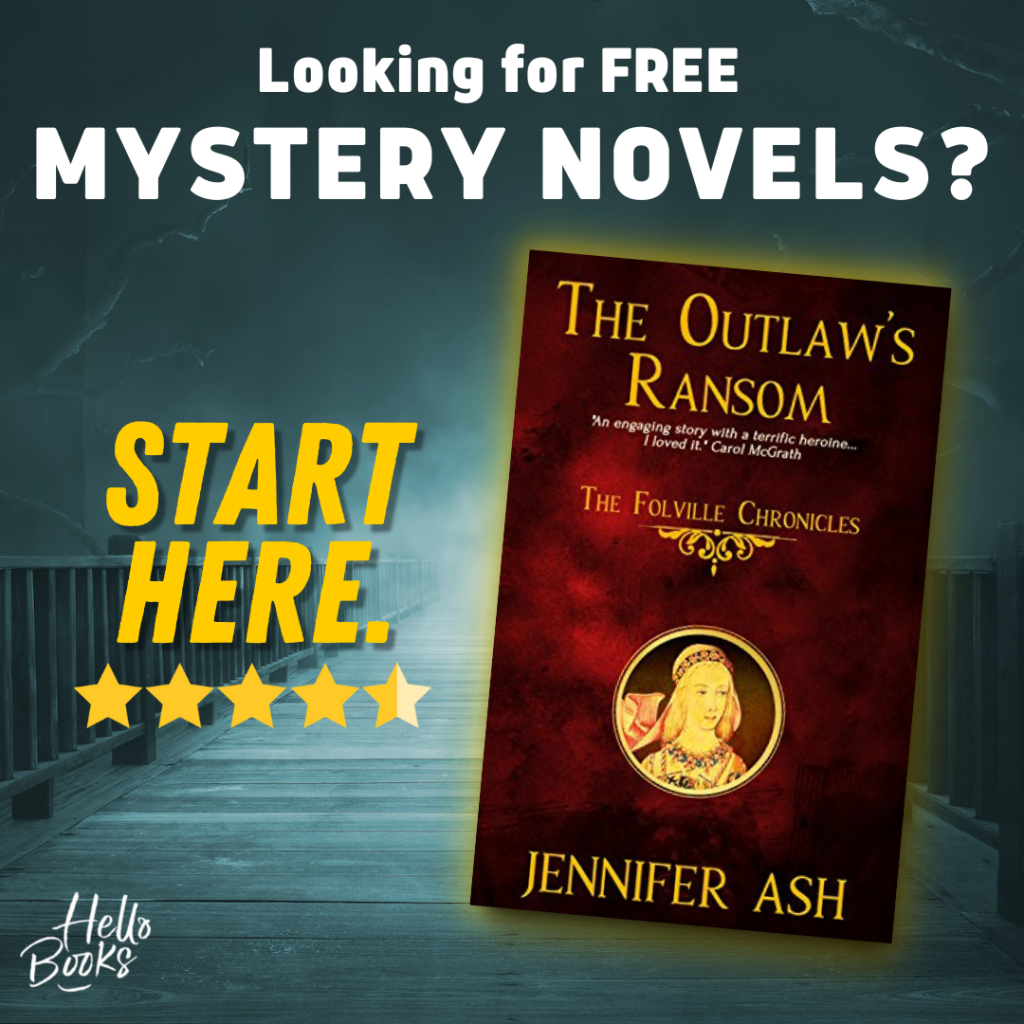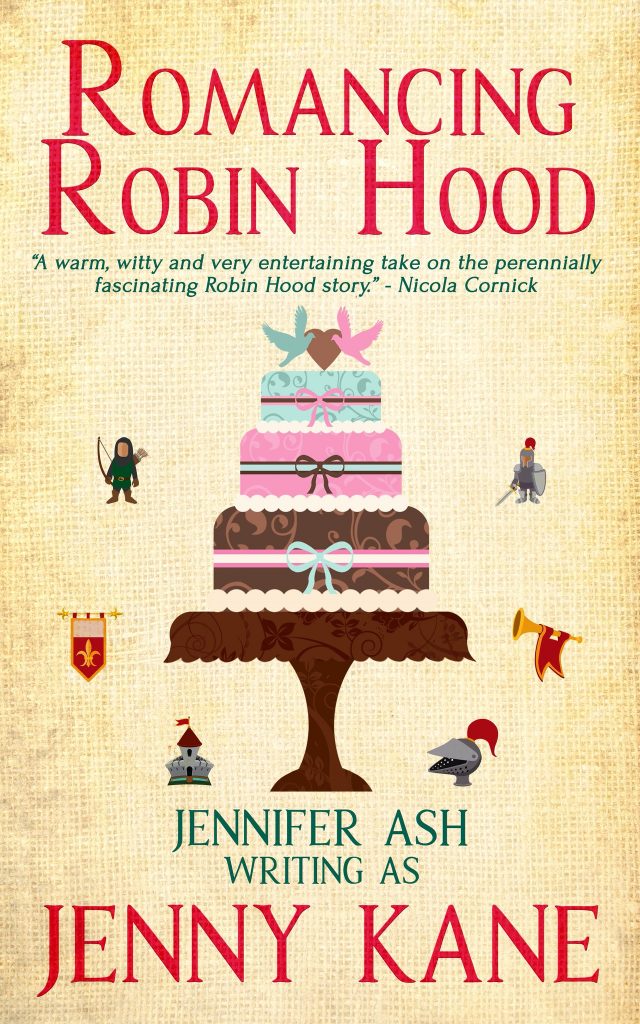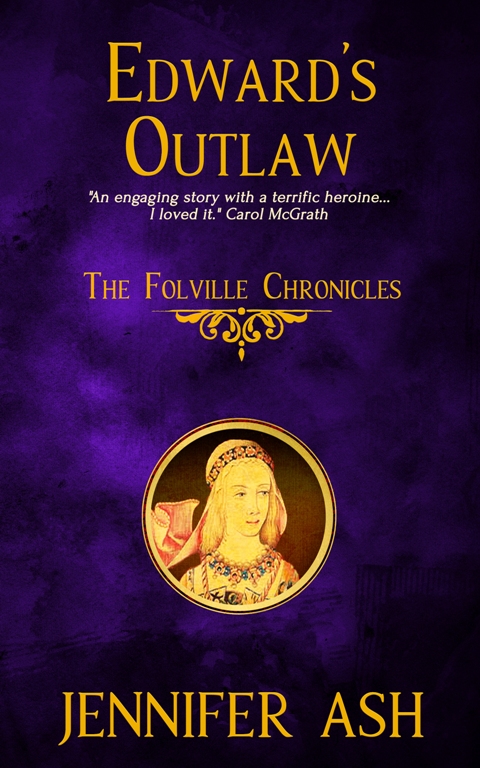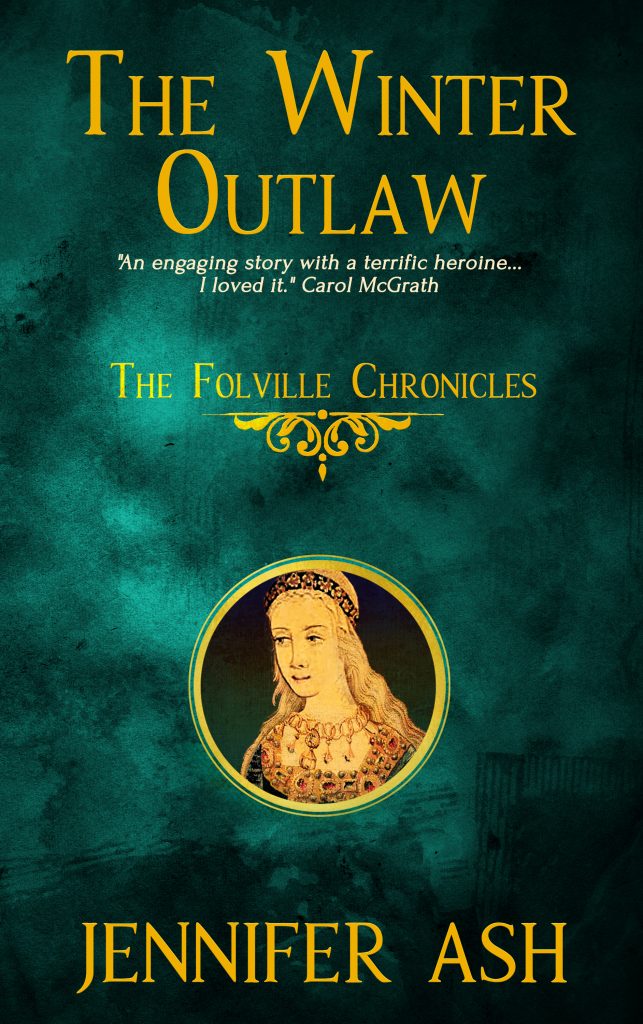The Outlaw’s Ransom is the first in an exciting historical crime series, set in fourteenth century England.
Book One of The Folville Chronicles – Blurb
When potter’s daughter Mathilda is kidnapped by the notorious Folville brothers as punishment for her father’s debts, she fears for her life. Although of noble birth, the Folvilles are infamous throughout the county for using crime to rule their lands—and for using any means necessary to deliver their distinctive brand of ‘justice’.
Mathilda must prove her worth to the Folvilles in order to win her freedom. To do so, she must go against her instincts and, disguised as the betrothed of Robert de Folville, undertake a mission that will send her to Bakewell in Derbyshire, and the home of Nicholas Coterel, one of the most infamous men in England.
With her life in the hands of more than one dangerous brigand, Mathilda must win the trust of the Folville’s housekeeper, Sarah, and Robert Folville himself if she has any chance of survival.
Never have the teachings gleaned from the tales of Robyn Hode been so useful…
Available as an ebook or paperback from: Amazon UK | Amazon US | Amazon CA | Amazon AU
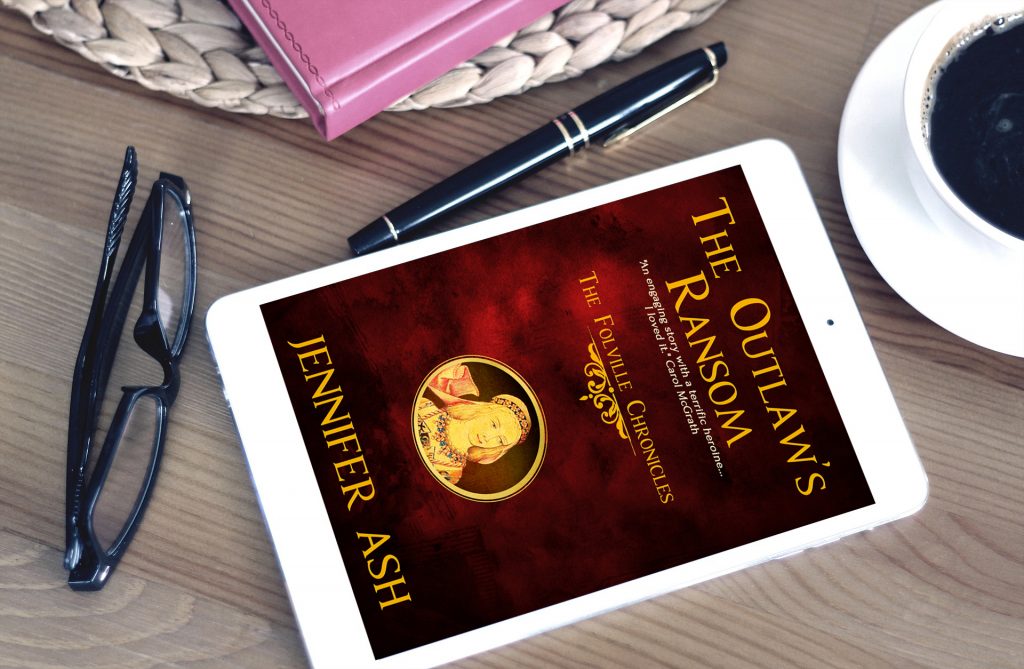
Extract:
Mathilda thought she was used to the dark, but the night-time gloom of the small room she shared with her brothers at home was nothing like this. The sheer density of this darkness enveloped her, physically gliding over her clammy skin. It made her breathless, as if it was trying to squeeze the life from her.
As moisture oozed between her naked toes, she presumed that the suspiciously soft surface she crouched on was moss, which had grown to form a damp cushion on the stone floor. It was a theory backed up by the smell of mould and general filthiness which hung in the air.
Trying not to think about how long she was going to be left in this windowless cell, Mathilda stretched her arms out to either side, and bravely felt for the extent of the walls, hoping she wasn’t about to touch something other than cold stone. The child’s voice that lingered at the back of her mind, even though she was a woman of nineteen, was telling her – screaming at her – that there might be bodies in here, secured in rusted irons, abandoned and rotting. She battled the voice down. Thinking like that would do her no good at all. Her father had always congratulated his only daughter on her level-headedness, and now it was being so thoroughly put to the test, she was determined not to let him down.
Stretching her fingers into the blackness, Mathilda placed the tips of her fingers against the wall behind her. It was wet. Trickles of water had found a way in from somewhere, giving the walls the same slimy covering as the floor.
Continuing to trace the outline of the rough stone wall, Mathilda kept her feet exactly where they were. In seconds her fingertips came to a corner, and by twisting at the waist, she quickly managed to plot her prison from one side of the heavy wooden door to the other. The dungeon could be no more than five feet square, although it must be about six feet tall. Her own five-foot frame had stumbled down a step when she’d been pushed into the cell, and her head was at least a foot clear of the ceiling. The bleak eerie silence was eating away at Mathilda’s determination to be brave, and the cold brought her suppressed fear to the fore. Suddenly the shivering she had stoically ignored overtook her, and there was nothing she could do but let it invade her…
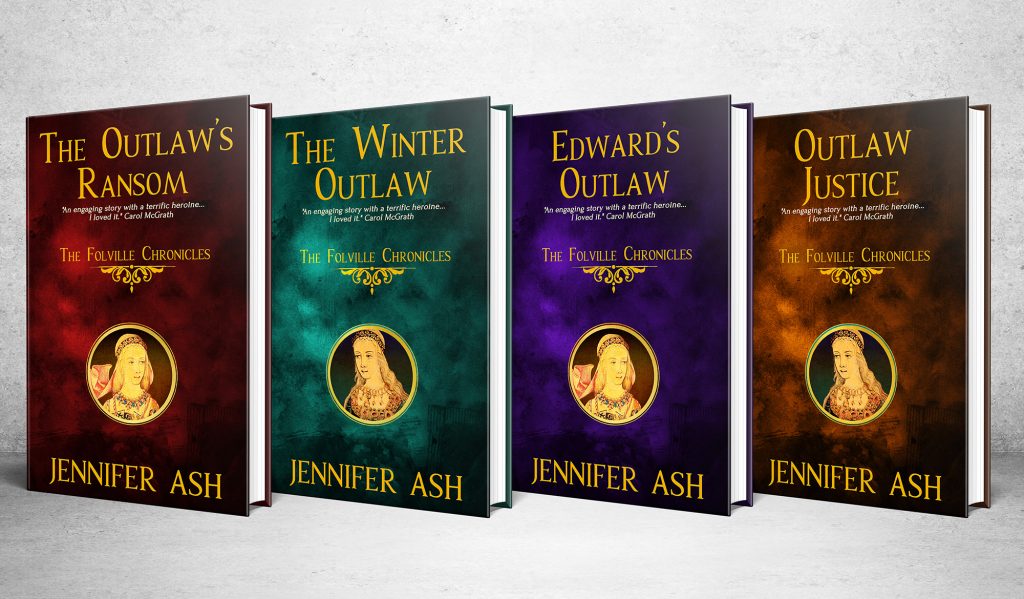
Here are just a few of the lovely reviews for Mathilda’s first story…
“Bought it last night and finished at 2am in the morning! I had already read “Romancing Robin Hood” and liked Mathilda, so I was curious what this book would be like. Many aspects of the story were already in the other book but this is a beautiful standalone and I didn’t mind rereading parts of the story. I’m glad this is a series by the looks of it and hope the next one will be out soon. I particularly like that the women are confident but still believable characters within the medieval background. No “Kardashians in costumes” but convincing dialogues and scene descriptions. Well done!” Amazon
“I first read this story when it appeared in a lesser form as a ‘story within a story’. (Romancing Robin Hood)
I have really enjoyed reading the expanded version – complete with historical references.
Mathilda is kidnapped by local highborn landowners/outlaws as a way of ensuring her family repay a loan. Too clever for her own good she soon realises that they wish to use her to pass messages to another family – who would ever think to question a young lady, but is very quickly embroiled in the murder of a local business man….A very cleverly written medieval who dunnit.” Goodreads
“An enjoyable read with credible characters and a pacey plot. Good scene setting, I felt like I was back in medieval times. Looking forward to the next book in the series.” Amazon
***
Happy reading,
Jennifer

